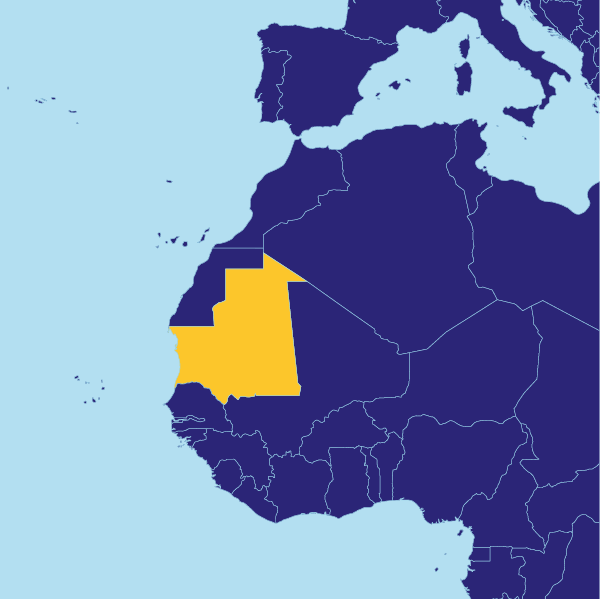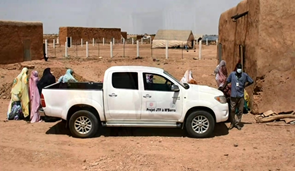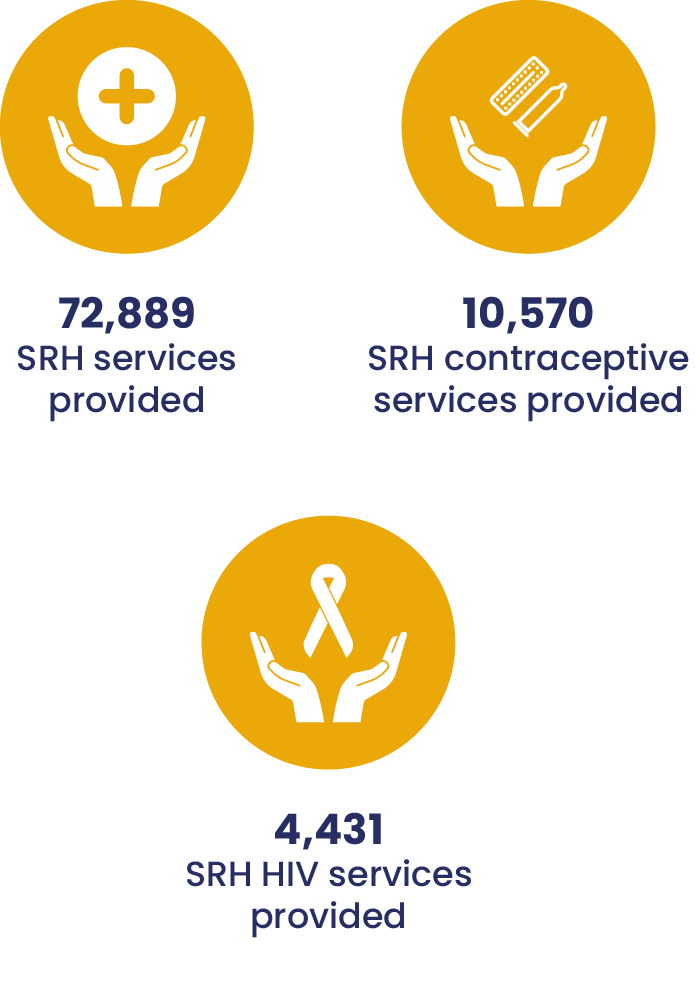Project period: January 2020 – December 2021
Implementing MA: Association Mauritanienne pour la Promotion de la Famille (AMPF)
Project goal
The project, based in Bassikounou, south east Mauritania bordering Mali, aimed to improve SRH outcomes among the Malian refugees in the M’Berra camp and in the host communities.
Project objectives
Objective 1: To provide high-quality health services, including SRH services, to 21,120 Malian refugees and 6,000 people from the host population.
Objective 2: To improve access to information on SRHR among additional 13,275 people living in the M’Berra Camp and 2,500 people from the host communities.
Objective 3: To strengthen the political and financial commitment of decision-makers and elected officials in Bassiknou.
Project background
Mauritania is one of the poorest countries in the world. More than 11% of its population face food insecurity, and many acute malnutrition.
According to government health surveys the country’s population has a very limited knowledge of sexual and reproductive health (SRH) and family planning (FP). Knowledge about HIV and AIDS is also limited, with 46% of respondents unaware of what causes AIDS.
In addition, a humanitarian crisis within Mauritania, related to an influx of refugees escaping conflict in Mali and exacerbated by drought, has led to the formation of a refugee camp at M’Berra, which is home to around 68,300 people, 37,055 of whom are women and girls. Malian refugees face many daily challenges, specifically around their sexual health, due to lack of access to contraception, unwanted pregnancies, sexually transmitted diseases, and risk of rape and exposure to SGBV.

Project achievement
The project used a static clinic, a mobile clinic, and 20 Community Health Workers (CHWs) to reach the target populations in the vast refugee camp and the host communities surrounding it. The provision of SRH services was guided by the IPPF Integrated Package of Essential Services (IPES), Minimum Initial Service Package (MISP), and the national protocols with a focus on addressing stigma and discrimination to ensure that everyone had full access to services. Community health workers were trained on integrated management of childhood illnesses and on voluntary counselling and testing for HIV.
Having established SRH service outlets, it was key that the target audiences for the project understood and knew how to ask for SRH services. Many people lacked knowledge of SRH, awareness of their health rights, and information on how to access services. Through group and individual education sessions held by CHWs, people learned about health-seeking behaviour and about making informed choices about their health. In total, the project reached over 16,000 people with information and had a significant impact on service take-up.
CHWs walked long distances to reach the hard-to-reach, under-served groups in the camp and the host communities. Altogether, 54 group sessions were held in the camp and 10 group sessions were conducted in the four host communities. The information sessions covered many issues, including SGBV and harmful practices such as child marriage. The project also worked with SGBV survivors to provide them with counselling and clinical management of rape including the provision of emergency contraceptives. Some sessions were specially designed for people living with HIV - to support them to adhere to treatment and to sensitise them on mother-to-child transmission.
An advocacy workshop was organised to secure the commitment of the local decision makers and elected officials. Subsequently, the Mauritanian Ministry of Health invited AMPF to continue the work initiated by the JTF project under the World Bank-supported INAYA project - an existing health promotion initiative for refugees.

I salute the courage of the community health workers who conduct awareness raising sessions all over this vast camp. Attitudes have changed. Before it was inconceivable that a woman would come to the health facility to ask for contraceptives. People thought it was shameful and against their religion.
Békaye Mohamed Abdellah
Nurse

Key achievement in numbers
| Indicators | Project targets | Project total | |
| # of SRH services provided | 72,889 | ||
| Of which contraceptive services | 10,570 | ||
| Of which HIV services | 4,431 | ||
| # of non-SRH services provided | N/A | ||
| # of condoms distributed | 40,014 | ||
| # of people reached with services | 27,120 | 29,312 | |
| # of people reached with information | 15,775 | 16,400 | |
| Others | |||
| With advocacy efforts, attained full commitment of five decision-makers and seven elected officials in the area of Bassiknou in promoting SRHR which was necessary to operate in the area with the target populations. | |||
when







